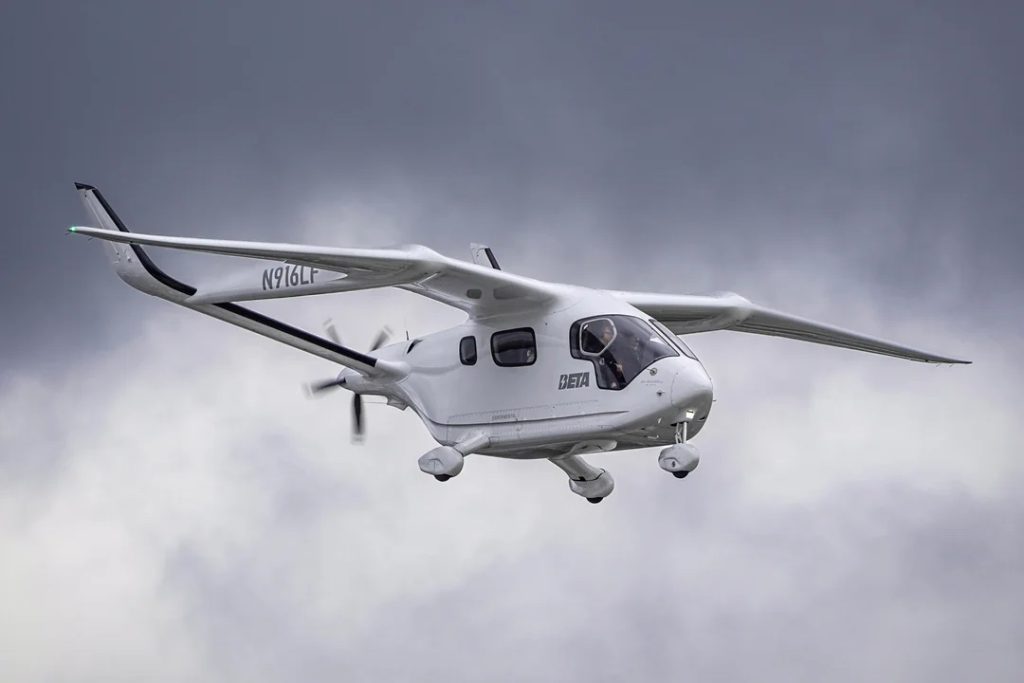Electric Aviation Takes Flight in Seattle as Beta Technologies Demonstrates Revolutionary ALIA CX300
In a significant moment for sustainable aviation, Beta Technologies brought its all-electric ALIA CX300 aircraft to Seattle’s Boeing Field this week, drawing attention from industry leaders, state officials, and aviation enthusiasts alike. The demonstration marked a pivotal event in Washington state’s aerospace landscape, where over a century of aviation history is now converging with cutting-edge electric flight technology. The distinctive aircraft, featuring an unusual rear propeller configuration, turned heads at King County International Airport, with local photographer Steve Rice capturing images that sparked intense discussions among aviation communities online about the future of electric flight.
Vermont-based Beta Technologies chose Seattle deliberately for this high-profile demonstration, acknowledging Washington’s “deep-rooted aviation heritage” and its position as “a global leader in aerospace innovation and manufacturing.” The company’s founder and CEO Kyle Clark emphasized the significance of the event, calling it “a step toward realizing a future where electric aviation is accessible, reliable, and benefits local communities.” This vision aligns with Washington state’s ongoing investments in sustainable aviation and the infrastructure needed to support these next-generation technologies. The demonstration represents more than just a novel aircraft; it symbolizes a potential paradigm shift in how we conceptualize regional air transportation, with electric propulsion promising quieter, cleaner alternatives to conventional aircraft.
Founded in 2017, Beta Technologies has developed two main aircraft models: the fixed-wing ALIA CTOL (Conventional Take-Off and Landing) demonstrated at Boeing Field and an ALIA VTOL (Vertical Take-Off and Landing) version. The ALIA CTOL, which completed its inaugural production model flight in November of last year, boasts an impressive range of 336 nautical miles on a single charge. This range capability challenges some common perceptions about electric aircraft limitations and opens possibilities for both passenger and cargo transportation across regional distances. The aircraft’s distinctive design features not only serve aerodynamic purposes but also optimize the capabilities of electric propulsion systems, representing years of engineering innovation focused on practical, deployable electric aviation solutions.
Beyond just aircraft manufacturing, Beta has recognized that successful electric aviation requires comprehensive infrastructure support. The company has developed and begun deploying a network of charging stations designed specifically for airports and the broader electric aviation ecosystem. This holistic approach demonstrates Beta’s understanding that the transition to electric aviation requires solving multiple interconnected challenges simultaneously. The charging infrastructure represents a critical component in making electric flight practical on a commercial scale, addressing one of the most frequently cited concerns about electric aviation—the availability of reliable charging facilities at destination airports. As this infrastructure expands, it could help establish the foundation for broader adoption of electric aircraft across regional transportation networks.
The financial community has taken notice of Beta’s progress, with the company recently filing for an initial public offering with plans to sell 25 million shares at $27 to $33 each—a price range that could value the company at an impressive $7.2 billion. This potential valuation reflects growing investor confidence in the electric aviation sector and Beta’s position within it. The company has already secured orders from operators like Vancouver-based Helijet International, which has committed to purchasing a fleet of Beta’s eVTOL aircraft. These early commercial relationships suggest that despite the nascent state of the technology, there’s already market demand for the capabilities these electric aircraft offer, particularly for specific regional transportation needs where the economics and environmental benefits align.
Washington state’s involvement in electric aviation extends beyond just hosting demonstrations, with several local companies actively developing similar technologies. Seattle-based Aero-TEC and Everett-based magniX are advancing their own electric and hybrid aircraft projects, contributing to the region’s growing expertise in sustainable aviation. However, the path isn’t without challenges, as evidenced by Arlington-based Eviation Aircraft’s recent pause in development of its Alice electric airplane. These mixed developments highlight both the tremendous potential and significant hurdles facing electric aviation as it moves from experimental technology to commercial reality. As Beta and other companies continue to advance their technologies and infrastructure, the distinctive silhouette of electric aircraft like the ALIA CX300 may become an increasingly common sight in Seattle skies, building upon the region’s storied aviation legacy while pointing toward a more sustainable future for air travel.















